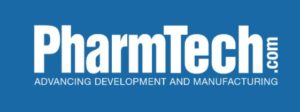Published Articles
Q. I am a small-scale parenteral manufacturer and have been approached to support a clinical program through Phases II and III. What sterile manufacturing considerations are important for the small-scale production lots?
A. The sterile manufacturing situation always raises some interesting discussions. The statistical assurances for sterility for normal commercial lots are not available because of the usually small lots during clinical production. At the same time, the need to minimize any unanticipated clinical risks remains high. The best advice is to consult the regulations and determine what requirements you must meet to help ensure the clinical material you are manufacturing is safe.
FDA Aseptic Processing Guidance
 Clinical trial material batches can range from as few as 200 to as many as 5000 units or more. It may not be feasible for these small-size batches to be produced on a traditional manufacturing line. In fact, some of the batches might be manufactured under a laminar flow hood by manual aseptic processing.
Clinical trial material batches can range from as few as 200 to as many as 5000 units or more. It may not be feasible for these small-size batches to be produced on a traditional manufacturing line. In fact, some of the batches might be manufactured under a laminar flow hood by manual aseptic processing.
Sterility Assurance
It is important to remember that sterility assurance of the product must be maintained even when the clinical-trial materials are being prepared by hand because of the small lot sizes required.
For these small-scale batches, manufacturers need to adhere to the recommended requirements for control of the environment as defined in FDA’s aseptic processing guidance, the Parenteral Drug Association’s Technical Report #62 on manual aseptic processing, and in EudraLex Volume 4, Annex 1. In other words, the environment must be maintained and monitored with the recommendations specified in the documentation governing aseptic processing.
Aseptic Pharmaceutical Manufacturing
Properly maintaining an aseptic pharmaceutical manufacturing environment suitable for drug products regardless of batch size is not as clear-cut as it seems. Quality personnel responsible for batch release need to take into consideration a number of factors before the lots in question can be released. These factors include assuring appropriate use of disinfectants before, during, and after manufacturing; proper gowning and aseptic technique of the operators; and making sure the environmental and qualification data support the operations.
So, what does this all mean? It means the company must have a robust program in place to support the sterility of the batch regardless of the lot size.
Sterile Pharmaceutical Manufacturing
There needs to be a cleaning program defining the proper use of disinfectants/sporocides before, during, and after processing. Sterile pharmaceutical manufacturing includes a gowning qualification/requalification program for personnel responsible for the product manufacturing. The gowning program should define how operators are initially qualified, how they are monitored for microbiological excursion during gowning, during manufacturing, and upon completion of manufacturing activities.
Aseptic Technique
It should also define how operators will be periodically requalified and how operators will be requalified in the event of an out-of-specification result. Operator aseptic technique should be tested through the conduction of media fills representative of the actual manufacturing runs. At a minimum, media fills should be performed annually.
Sterile Production
There also needs to be a facility maintenance program that challenges the appropriateness of the air handling system during sterile production. Establishing a periodic maintenance program for your high-efficiency particulate air (HEPA) air filtering system and performing periodic smoke studies to make sure the airflow is suitable for aseptic operations should provide quality assurance that the airflow system is in control and is functioning appropriately.
In addition to the above recommendations, the company should have a program to control incoming components. Components used in the manufacture of aseptic processing on a small scale need to be rendered pyrogen free before being introduced into the manufacturing area.
Sterile Products
Small-scale batches of sterile products will not be taking advantage of continuous processes associated with large-scale lot manufacturing, so consideration must be given to how the materials and components will be introduced manually into the manufacturing area. This will require even greater emphasis on operator technique.
In some instances, the manufacturing equipment used in small-scale batch production is portable, so this program should also encompass the introduction of the necessary manufacturing equipment into the production area.
Environmental Monitoring
There needs to be an established environmental monitoring program. The environmental monitoring program for small-scale batch production should provide the information on the quality of the aseptic processing environment including any ancillary areas such as the equipment/component processing area, gowning rooms, laminar flow hoods, floors, ceilings, walls, and equipment surfaces including those that come into contact with the product components as well as the product itself.
Sterile Product Manufacturing
Determining the appropriate monitoring locations should be determined through a comprehensive risk evaluation. Sterile product manufacturing should periodically be reviewed and updated to reflect the most current operating conditions.
Finally, there needs to be consideration to final product testing and the appropriate number of product samples needed to ensure the product is sterile and safe for patients. The samples needed for testing should be taken from the beginning, middle, and end of the manufacturing run and the number taken should be reflective of the batch size.
Controls
Successfully manufacturing small-scale parenteral batches suitable for patients requires many of the same procedures and controls needed for large-scale parenteral manufacturing. If you keep in mind-regardless of batch size or manufacturing process-that the ultimate goal is to assure the sterility of the product throughout the manufacturing run and you use the data collected to determine the suitability of your processes, you should be able to produce any size batch in accordance with regulatory expectations.
Article Details

Pharmaceutical Technology
Vol. 41, No. 2
Pages: 82, 81
To begin the Regulatory Compliance Associates scoping process today, please enter your information in the blue form below and click the submit button at the bottom of the webpage. You may also email us at [email protected].
Connect with RCA Today
Contact us to learn more about our regulatory compliance experts and how they can help



















